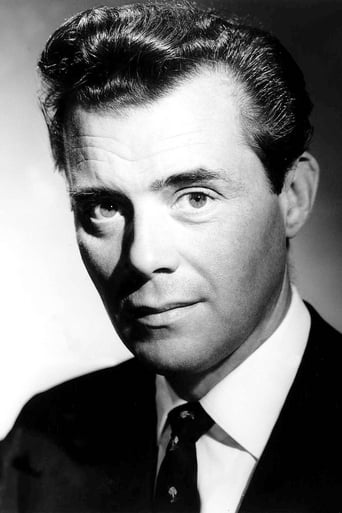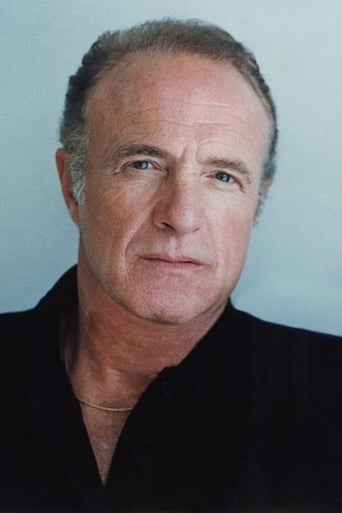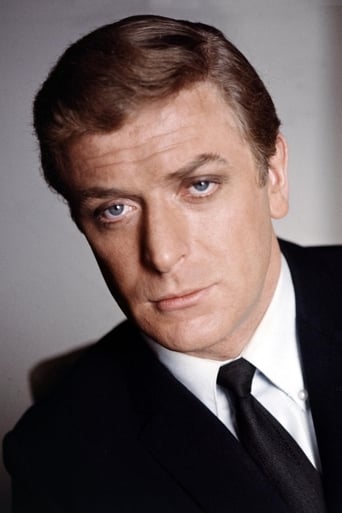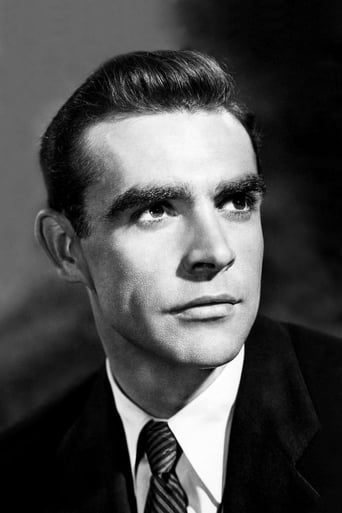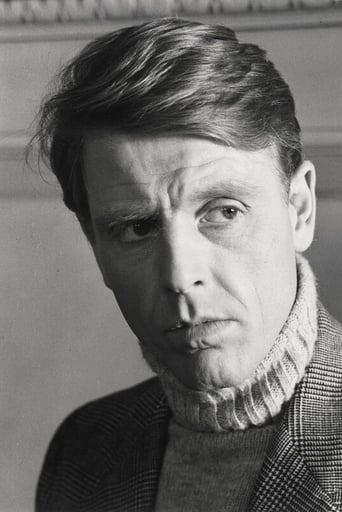Protraph
Lack of good storyline.
Freaktana
A Major Disappointment
Maidexpl
Entertaining from beginning to end, it maintains the spirit of the franchise while establishing it's own seal with a fun cast
Scarlet
The film never slows down or bores, plunging from one harrowing sequence to the next.
phil allen
The annoying 'triumphal' American-sounding music theme throughout the film is the worst sort of corn. Worse still are the numbing vignettes of endless delay, relieved by fire exchanges both big and brief. This is supposed to be a depiction of war as it is, with the jolly putdowns, and days on empty, but it doesn't entertain. And Ryan O'Neal a general?
It lumps along like a tank with a missing track.I will say that the shots of men getting hit and the instant appearance of blood and flesh was very believable and well done.
yakster1
I had read Cornelius Ryan's fine book before seeing the this and was eager to see the film version in the theatre especially when the cast became known. I've never understood the critics hatred for this film when it came out especially from the big names (Ebert, Maltin, Kael etc) because as evidenced here, viewers certainly like it. Although it does have its good points and bad. First off, for any lover of big, epic war films it must be seen for its production values alone. Joseph E. Levine spared no expense from filming at the actual locations in Holland to the all-star cast (more on this later). With many of the main players acting as consultants, the historical accuracy is also something for WWII buffs to revel in. Many find the plot confusing yet Edward Fox (excellent) as Horrocks explains the entire operation early in the film so we know the general outline from what is a massive undertaking. The acting, mostly from the Brits (Connery, Caine, Hopkins, Bogarde,) is pretty good whereas the Americans pale in comparison. Ryan O'Neal further stakes his claim as one of the worst actors ever with his whining Gen. Gavin and Gene Hackman sports the worst film accent this side of Jean-Claude van Damme explaining he is from "kebec". Another criticism is that it is top heavy with stars, with many with little screen time. If James Caan's character was cut from the film it would not deter it one bit. Same thing with Elliot Gould. You did not need an actor of that stature (back then anyway) in a bit part. Olivier also has a small part but makes the most of what he has to work with. All in all, a truly big, epic film that should be see by anyone interested in an unknown story of WWII. Just don't expect a happy ending.
classicalsteve
Quentin Tarantino once said it's best for characters in an action film to avoid discussing "the plot" too much. In "A Bridge Too Far", the dialogue and settings are so campy and obvious, the experience lapses into too many cliché scenes. Also, there are more stars in this film than in the Milky Way Galaxy. As the film moves along, name and star actors keep popping up: Sean Connery, Gene Hackman, Eliot Gould, Anthony Hopkins, James Caan, and Ryan O'Neil are all either donning officer's uniforms or privates' gear, and I've named only about half of them!The story is certainly one worth exploring in a film: the failed military plan Operation Market Garden which occurred during early Fall of 1944 in which allied troops attempted to infiltrate Holland and push over bridges of the Rhine to enter into Germany as a means of more quickly ending the Second World War. It's not the actual story which is the problem; it's the realization which has much to be desired. Nearly every scene is filled with silly cliché drivel which has been used in war films from circa 1950 to 1965. It has much of the same issues as its predecessor "The Longest Day", in which high command, officers, and troops are constantly spewing over-the-top and/or unrealistic statements about the purpose of the endeavor.Even without having viewed this film before, I predicted who would play which character. The following are those on the allied side. Gene Hackman obviously would be one of the lone voices to object to the mission, and he was cast as Stanisław Franciszek Sosabowski, a Polish General aiding the allies. Hackman's accent doesn't sound Polish but like bad Scottish as he rails against the allied leadership concerning the attack! Michael Caine as Colonel Joe Vandeleur pops up in a few scenes, often running around in a jeep wearing an ascot tie and sporting binoculars. I wasn't exactly certain where he fit into the operation. Eliot Gould as Col. Robert Stout is also often in a jeep, swearing with a cigar in his lips. He seems like a throw-back to his character in the original M.A.S.H. film (not the television show) where he played Capt. "Trapper" John McIntyre, who also sported a cigar. Ryan O'Neil plays Brig. Gen. James Gavin whose character in the film is so ambiguous I didn't understand that he was in fact a general who did go on para-trooping missions with lower-ranking enlisted men. Ryan seemed far too young in the role of a bona fide general.The German side is little better. Hardy Krüger and Maximilian Schell lead among the German officers, but their dialogue and characterization ring of the issues in "The Longest Day". In other words, the Germans are portrayed as rather incompetent nincompoops who are constantly at attention like toy soldiers. One of the more silly exchanges is when one of the German high-command learn of the Allies para-trooping, they are dismayed they would be landing 12 km (about 7 miles) from the bridges over the Rhine. Duh. They're not going to land right on top of enemy lines, and the bridges are guarded by German infantry, which is shown later in the film. At one point, they also intercept allied plans from a wrecked Alley plane, but the high command immediately tosses them away, claiming they were placed there by the Allies as a means to fool the Germans. In point of fact, such plans were always brought to special intelligence departments for analysis by experts. In a similar story recounted in "The Man Who Never Was", the Germans received a planting of bogus plans aboard a wrecked airplane with dead "pilot", and they are eventually given to the Germans for intelligence analysis. That film was made 20 years before "A Bridge Too Far" and was far more realistic. The incredible dialogue is what really makes this film. Consider the following with James Caan: Private: You tell me, Eddie. You tell me I won't die. Caan: All right, you won't die. Private: No, no. Guarantee me. I want you to guarantee me I won't die. Caan: I guarantee you. Soldiers in combat don't really talk like this. Most of the time if not all the time, they avoided talking about death. Here is an example from the German side: General Ludwig: Forgive me, but there is a battle. And we are in the process of winning it. Dr. Jan Spaander: Winning and losing is not our concern - living and dying... is. Do people really talk like this in the midst of war? I don't think so. This film experience is like looking for Hitchcock in a Hitchcock film: everywhere different name actors pop up and you find yourself wanting to find the next one which is shown on the poster with little boxes for all the movie stars! The problem is there are just way too many roles for name actors, and I was getting confused as to where I was or which character was doing which task. It would been far better to focus on fewer characters and develop them well instead of relying on every war cliché imaginable and hoping it sticks like spaghetti thrown against the wall. Sometimes it sticks, but more often it doesn't.
SimonJack
"A Bridge Too Far" is one of the best war movies ever made. It's based on a 1974 historical novel by Cornelius Ryan who also wrote "The Longest Day" in 1959. Ryan was highly regarded for the detail of research for his books. He strove for accuracy and authenticity. Ryan was born in Dublin in 1920 and became a British war correspondent for The Daily Telegraph in 1941. He went on 14 bombing missions with the U.S. Army Air Forces. On D-Day (June 6, 1944), he flew over the Normandy beaches in a bomber. Then, after returning to England, he went to Normandy on a patrol boat the same day. He later covered Lt. Gen. George Patton's Third Army, and then reported on the war in the Pacific. Ryan's "The Longest Day" sold millions of copies and was the basis for the 1962 movie by the same name. He wrote the screenplay for that blockbuster film that won two Oscars. In an item in Time Magazine of Dec. 9, 1974, Ryan was quoted: "What I write about is not war but the courage of man." There can be no doubt about that in his two books that were made into two of the best historical war films of all time. Besides the logistics, planning, and background details and facts, Ryan incorporates the characters and personalities of individual men in his stories. He covers Allied and Axis forces alike, from generals to sergeants to privates."A Bridge Too Far" is about Operation Market Garden. It has gritty, tough, scenes of men in battle on both sides. Much time is devoted to the fighting of the British 1st Airborne Division in the Battle of Arnhem. The advance airborne battalion under Lt. Col. John D. Frost (played superbly by Anthony Hopkins) captures one end of the Arnhem bridge and then holds out for nine days. All this with ammunition running out and no resupply or reinforcements, while the Germans throw heavy artillery, tanks and mechanized infantry attacks at them. Elsewhere, the rest of the division commanded by Major General Roy Urquhart (played superbly by Sean Connery) is divided, cut off and surrounded by German forces. Operation Market Garden failed because the Allies did not capture the Rhine bridge at Arnhem and had to retreat. It was planned to spearhead a drive to capture the Ruhr Valley and shut down Germany's war production plants. The American 101st and 82nd Airborne divisions did secure river crossings at Eindhoven and Nijmegen, respectively. But the British XXX Corps met with strong German opposition and slowed to a crawl on the ground. It failed to reach the British paratroopers 64 miles away in just two days as planned. So, the whole operation bogged down, with only the ground gained to Nijmegen. "A Bridge Too Far," covers the entire Operation Market Garden. For the first time, the public got a look at the foibles and errors in planning this major wartime operation. The film shows the questions raised by various commands and officers at the time. The major foul- ups were many, and the outcome was disastrous for the British and Polish paratroopers. Just over 2,000 of the 10,000 plus British and Polish force were able to escape when ordered to retreat. The rest were killed, wounded or captured. Not a single radio worked for the British Airborne forces, so they couldn't communicate among their units or with headquarters. How could they go into combat without tested and working equipment? The film shows how. The planners put the landing zone for the Brits eight miles from their target bridge. So a surprise strike and quick capture of the bridge wasn't to be. But the Germans would have time to cut off units and surround them. There weren't enough aircraft for all the forces to strike together the first day. So, units were dropped over three days. Again, there was no surprise or catching the Germans off guard. Instead, they had time to surround the British landing zone. The top brass dismissed aerial photography that showed hidden German tanks. The operation leaders didn't believe or trust the underground reports they received. Yet the Dutch had been reliable for four years. And, when unit commanders expressed concerns, the top brass dismissed them. There were many signs of military incompetence at various levels in this film, but mostly at the top. "A Bridge Too Far" is an independent film made by Joseph Levine and Directed by acclaimed English actor and director, Richard Attenborough. The production team and crew read like a British telephone directory. The cast includes 20 big name American and British actors of the day. Numerous Allied commanders from Market Garden, now retired, served as consultants during the making of the film. Besides Urquhart and Frost, already mentioned, these included Maj. Gen. Brian Horrocks (played superbly by Edward Fox), Brig. Gen. James Gavin (37 years old at the time, and played very well by Ryan O'Neal), and Brigadier Joe Vandeleur (played superbly by Michael Caine). The movie was filmed at several locations in The Netherlands. There are some small equipment goofs, but the military equipment and armament are very impressive. The special effects are "dynamite." The filming of the C-47 "Dakota" transport planes and the towed gliders is wonderful. The parachute jump is one of the best and most impressive I've seen on film (I am a former paratrooper). And the musical score for the film is excellent. This movie didn't receive a single Academy Award nomination in 1974. And it was a year that had very few good films. So, Hollywood blew it by ignoring this great movie. The film did win three BAFTA awards with four more nominations. "A Bridge Too Far" will likely be held as one of the great historical war movies of all time.












